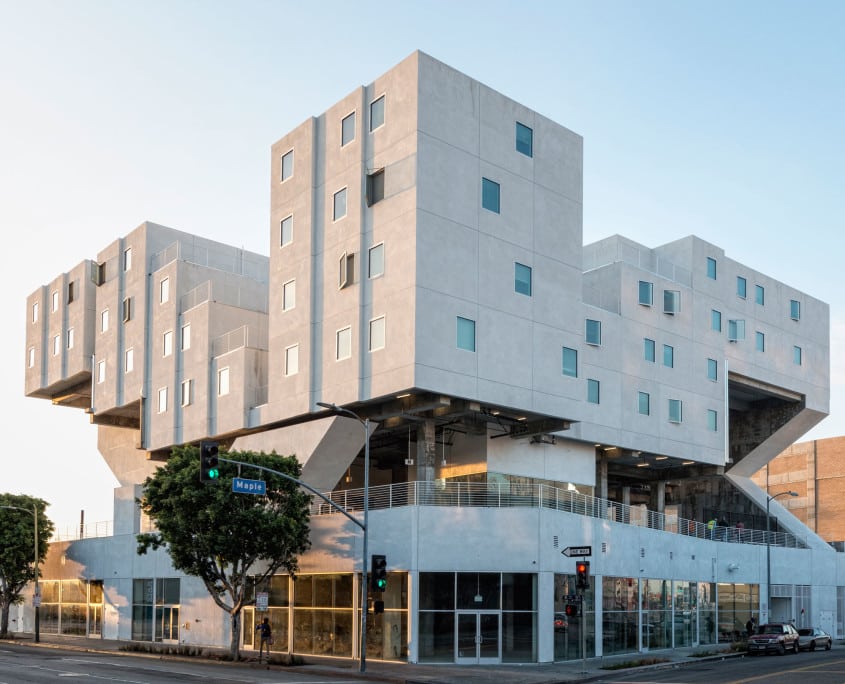By Panayiotis Pachomiou
Housing is a basic human right, but many Europeans struggle to find a home they can afford. The high cost of housing affects not only individuals and families, but also the social and economic development of the continent. To address this issue, the European Union has launched initiatives to support affordable housing across its member states.
One of these initiatives is the EU’s structural funds, which provide financing for programmes that improve the availability and quality of affordable housing. They include renovating existing buildings, constructing new ones, and promoting social inclusion and energy efficiency. The EU also organises events to exchange best practices and foster innovation in the field of affordable housing.
One such event was the Affordable Housing Innovation and Financing Summit (AHIFS), which took place in June 2023. The summit brought together experts from various sectors, such as policy makers, investors, developers, architects and civil society. The participants discussed the challenges and opportunities of affordable housing in Europe and proposed solutions to increase the supply and accessibility of decent homes for everyone.
Another event was the Affordable Housing Tech Camp, which was held in Barcelona. The Tech Camp showcased innovative technological solutions that can help address the affordable housing crisis. These solutions ranged from apps that inform users about available housing options to devices that improve the energy performance of buildings. The Tech Camp aimed to inspire and connect stakeholders who can use technology to create positive social impact.
Technology is not the only factor that matters for affordable housing. We also need rules and criteria to ensure that new homes are of good quality. For this purpose, the European Standard for Affordable Housing provides a solid basis for building homes that are both affordable and of high quality. This standard sets minimum standards for the floor space, bedrooms, storage areas and ceiling heights. These standards take into account the number of people expected to live in each specific bedroom, thus ensuring the residents’ well-being.
It’s time to acknowledge that affordable housing is not just an economic issue, but a basic right. Every person has the right to adequate housing, and it is our responsibility to make this right a reality for everyone. To do this, we need a holistic approach that involves technology, policy and social engagement. With the help of the EU, Cyprus can support affordable housing and secure a better future for all its people.
The new housing policy should aim for major reforms that will affect the public, communities and the urban planning system. Key goals include creating a flexible, efficient and stable housing market, updating local plans to involve both the public and private sectors in the affordable housing production process. Developing affordable housing and promoting sustainable development are essential objectives that require a strategic approach and multidimensional cooperation.
The following guiding principles provide the framework for developing revitalisation programmes and increasing the availability of affordable housing. Firstly, limited urbanisation is suggested, with land parcels limited to four plots each, to preserve large land portions for integrated developments, thus offering further urban planning incentives.
The practice of continuous construction in regeneration projects proves to be an effective way to build affordable housing. Through this practice, developers can create buildings that cover the entire length of a property, resulting in the creation of lively and affordable communities.
Furthermore, the assessment of the institution of selling and transferring the building coefficient from listed buildings, including the Republic’s occupied territories, is proposed. This way, sustainable development is ensured while also providing opportunities for affordable housing.
From the same perspective, the provision of affordable housing in tourist and residential zones with more than 10 apartments is recommended. By obligatorily offering a certain percentage of affordable housing in each development, an increase in supply and improvement in residents’ well-being is achieved.
The simplification of bureaucracy and permit processes for constructing affordable housing is a vital step towards achieving these goals. Reducing costs and speeding up procedures favour the development of affordable housing. The use of efficient materials and technologies, along with subsidising construction investments, contributes not only to quality but also to accessibility.
Finally, strengthening collaboration between the public and private sectors emerges as a key to developing affordable housing. The creation of public-private partnerships, along with incentives and subsidies, increases supply and contributes to achieving objectives for affordable housing and sustainable development. I call on authorities, stakeholders and the public to work together, acknowledge the importance of affordable housing, and take action. Only through cooperation can we make affordable housing a reality for everyone.
Panayiotis Pachomiou is a chartered architect with a BSc (Hons) Arch Diploma Arch RIBA







Click here to change your cookie preferences